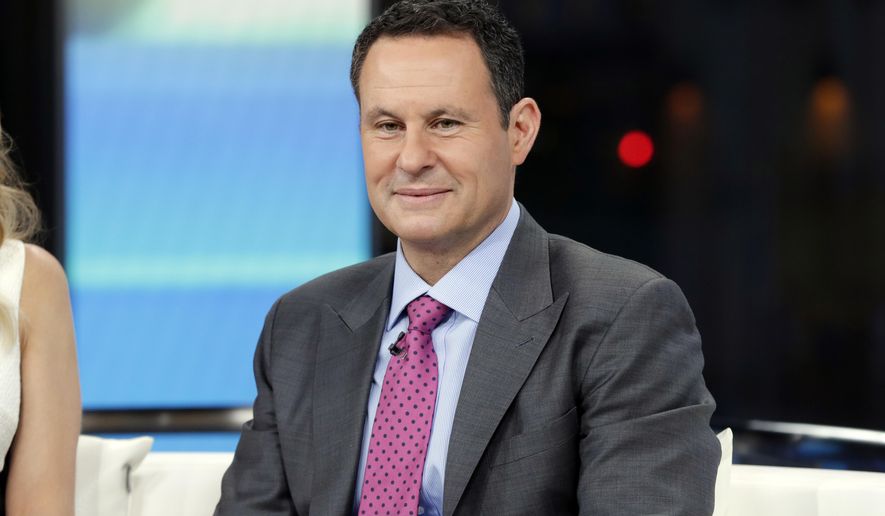Today’s U.S. racial divisions could find a model for healing in the unlikely friendship of President Abraham Lincoln and Frederick Douglass, according to the latest book by Fox News host Brian Kilmeade.
The 57-year-old cohost of “Fox & Friends” said in an interview that his research for the book “The President and the Freedom Fighter” revealed how the first Republican president and the escaped slave-turned-abolitionist found a middle ground despite their “strong disagreements” about race after getting to know each other.
“If the American Dream is about overcoming circumstances, you can’t find anyone better than Douglass and Lincoln,” Mr. Kilmeade said.
“They grew up poor without any education or opportunities, and Douglass had it worse, but they had a tremendous impact on each other and this country,” he added.
Mr. Kilmeade said today’s politicians could learn from the legendary relationship, which helped cool some of the polarization between abolitionists who felt Lincoln wasn’t moving fast enough and more cautious politicians who believed he risked the South’s anger by moving too quickly against slavery.
“I think there’s a real thirst and sincerity to work through the issue of race in America,” the author said. “But right now, there’s too much downside for speaking up about it, because people don’t have a safe space to speak up without paying the penalty personally and professionally.”
In preparing the book, Mr. Kilmeade relied heavily on Douglass’ autobiography and Lincoln’s speeches.
Before their first meeting, he noted, Douglass had criticized Lincoln for not paying Black soldiers equally and for not going far enough in his January 1863 Emancipation Proclamation, which freed only slaves in Confederate-held territories as the Civil War neared its third year.
But developing a personal relationship with the white president led the Black abolitionist to a better appreciation of Lincoln’s need for political timing, the political commentator noted, and pushed Lincoln in a more abolitionist direction.
“Douglass said he finally understood why Lincoln earned his nickname ‘Honest Abe,’” Mr. Kilmeade said.
Douglass called Lincoln’s attempt to engage him “a sacred effort.” During the last time they met at Lincoln’s second inauguration, the president called the former slave “my friend Douglass.”
Mr. Kilmeade said their example of listening to each other shows the possibility of learning from other perspectives — regardless of how much one has read or studied.
“Engage the people who disagree with you because it washes away the preconceptions,” the author said of the book’s lessons. “Right now we’re staying in our corners and we’re not even going out to meet the referee.”
But the pundit noted that Lincoln and Douglass also saw past race when dealing with each other — a controversial issue for some anti-racism activists today.
“There’s a force out there telling us to evaluate people based on their race, gender and sexuality, and nothing good comes of that,” Mr. Kilmeade said.
The author described Douglass as “a man who wanted to make America great” in a hurry, whereas Lincoln “had race placed in his lap and couldn’t avoid it anymore.”
But the “common enemy” of the Confederacy ultimately united them in a way that Mr. Kilmeade believes the foreign challenges posed by China and Iran might yet do for partisan divisions over race issues today.
“Right now polarization sells: I win and you lose,” Mr. Kilmeade said. “But I think we’re going to get tired of being tense and being angry.”
• Sean Salai can be reached at ssalai@washingtontimes.com.




Please read our comment policy before commenting.